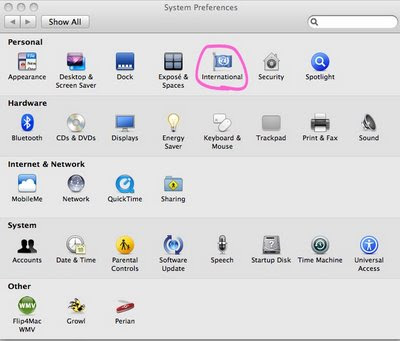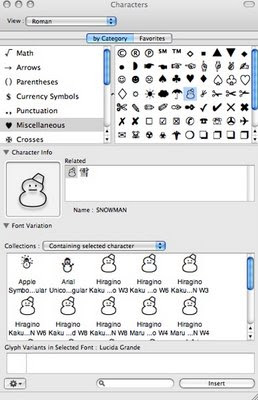
I don't usually like to cross-post on my blogs but this one is geeky and tells the truth about my ThoughtWorks experience.








"As a result of this change in customer preferences, Trading Post will become an exclusively online and mobile trading place from November with the last print publications on sale from 29 October 2009."











jQuery(document).ready(function($) {
textboxes = $("input:text");
if ($.browser.mozilla) {
$(textboxes).keypress(checkForEnter);
} else {
$(textboxes).keydown(checkForEnter);
}
function checkForEnter(event) {
if (event.keyCode == 13) {
currentTextboxNumber = textboxes.index(this);
if (textboxes[currentTextboxNumber + 1] != null) {
nextTextbox = textboxes[currentTextboxNumber + 1];
nextTextbox.select();
}
event.preventDefault();
return false;
}
}
});

"January 27th is the birthday of Lewis Carrol, author of ALICE'S ADVENTURES IN WONDERLAND. Alice fell down a rabbit hole into a place where everything had changed and none of the rules could be counted on to apply anymore. I say, let's do the same: January 27th, 2005 should be the First Annual LiveJournal Rabbit Hole Day. When you post on that Thursday, instead of the normal daily life and work and news and politics, write about the strange new world you have found yourself in for the day, with its strange new life and work and news and politics. Are your pets talking back at you now? Has your child suddenly grown to full adulthood? Does everyone at work think you're someone else now? Did Bush step down from the White House to become a pro-circuit tap-dancer? Did Zoroastrian missionaries show up on your doorstep with literature in 3-D? Have you been placed under house arrest by bizarre insectoid women wielding clubs made of lunchmeat?"
"When you configure your test target, you need to decide how you want that target to behave. The unit test bundles that come with Xcode can be integrated with your executable in one of two ways. One technique is to configure your test target as a separate entity that you build and run independent of your main executable. The other is to add dependencies to your target that automatically build your executable and run the tests each time you build."
-- Xcode Help
I've chosen to run the tests every time I build the framework project, so I followed the steps on this Xcode Help page: To make your test target dependent on your framework project.
Here is a summary of how to make a Cocoa Unit Test Target dependent on your Cocoa Framework by establishing the dependency in your Xcode project:
1. Select your MyAppTests target;
2. Open an inspector for the target;
3. Select the General tab;
4. Add a dependency to the test target by clicking the + button and selecting the framework target MyApp from the list;
5. Select your Unit Test Bundle target;
6. Open an inspector for the target. To get an inspector on a project, just control-click on the test target and choose Get Info. The resulting window is referred to as an inspector. Typing Command-I does the same thing;
7. Set Build -> Linking ->Bundle Loader to $(BUILT_PRODUCTS_DIR)/MyApp.framework/MyApp;
Create a Test Class and a Failing Test
1. Control-click on the MyAppTests target and choose Add -> New File...;
2. Create a new Objective-C Test Case Class and name it MyAppFunctionalityTests. Two files will be created - MyAppFunctionalityTests.h (the declaration) and MyAppFunctionalityTests.m (the definition);
3. In MyAppFunctionalityTests.m, add a test method like this:
//
// MyAppFunctionalityTests .m
// MyApp
//
// Created by Damana Madden on 10/01/09.
// Copyright 2009 __MyCompanyName__. All rights reserved.
//
#import "MyAppFunctionalityTests.h"
@implementation MyAppFunctionalityTests
- (void) testThatThisIsTrueForThisCase
{
STAssertTrue(false, @"oops it didn't work.");
}
@end

Apple started a user experience trend many iOSes ago when it accepted Settings changes and did not ask for confirmation. Once the chang...
